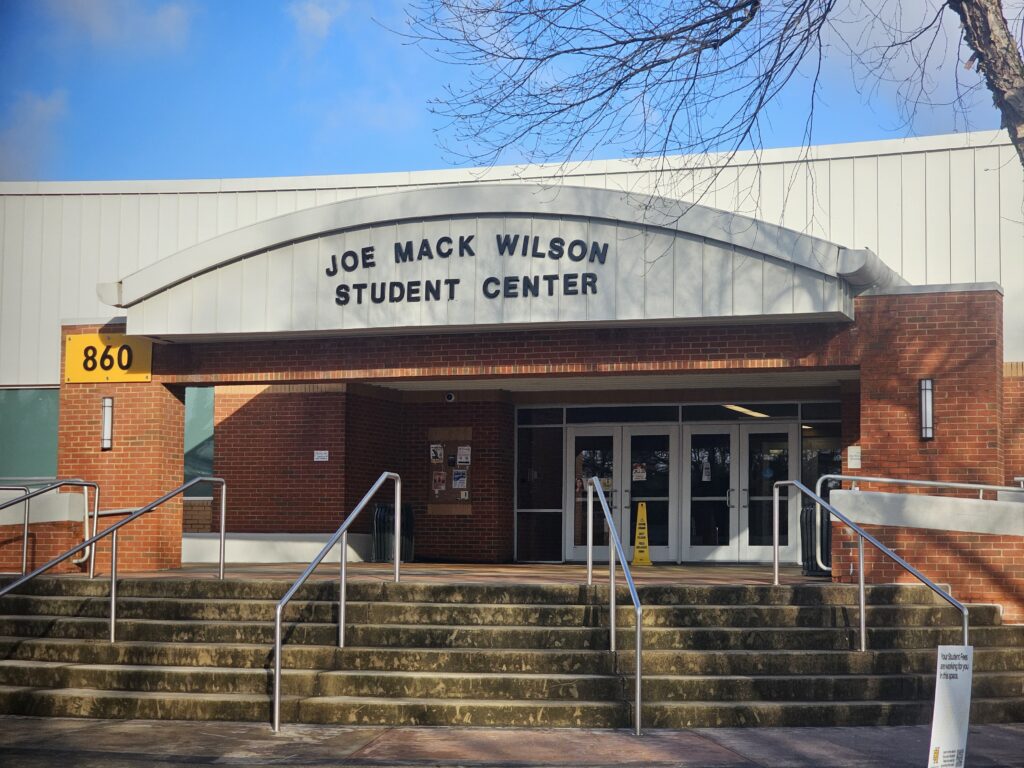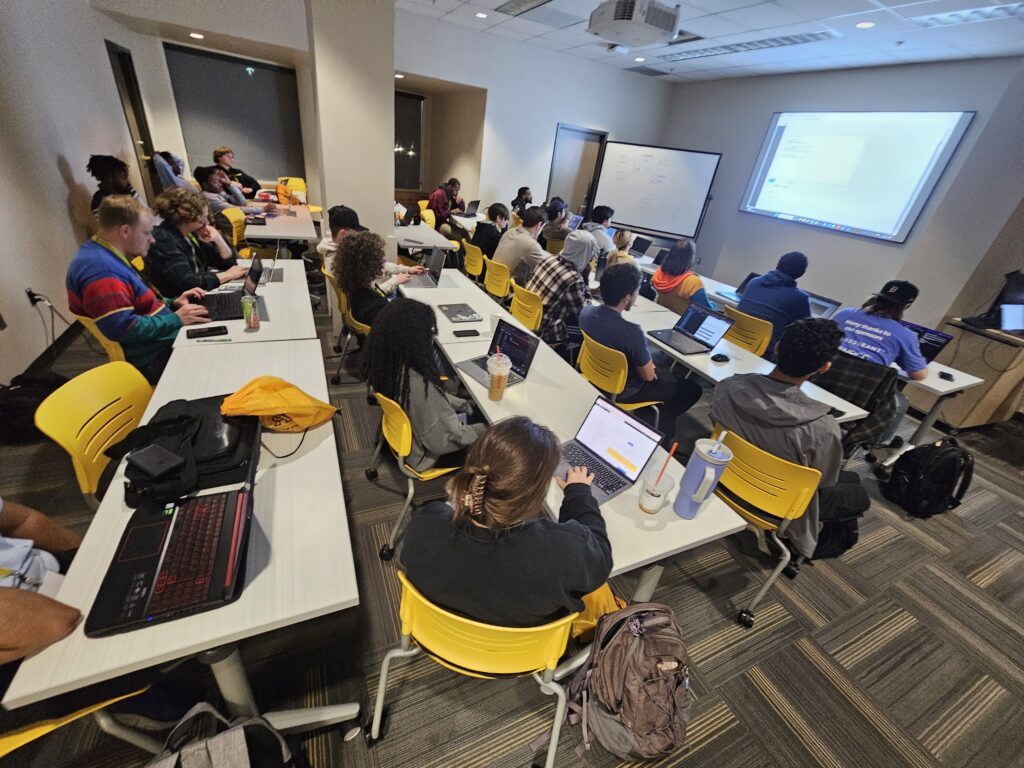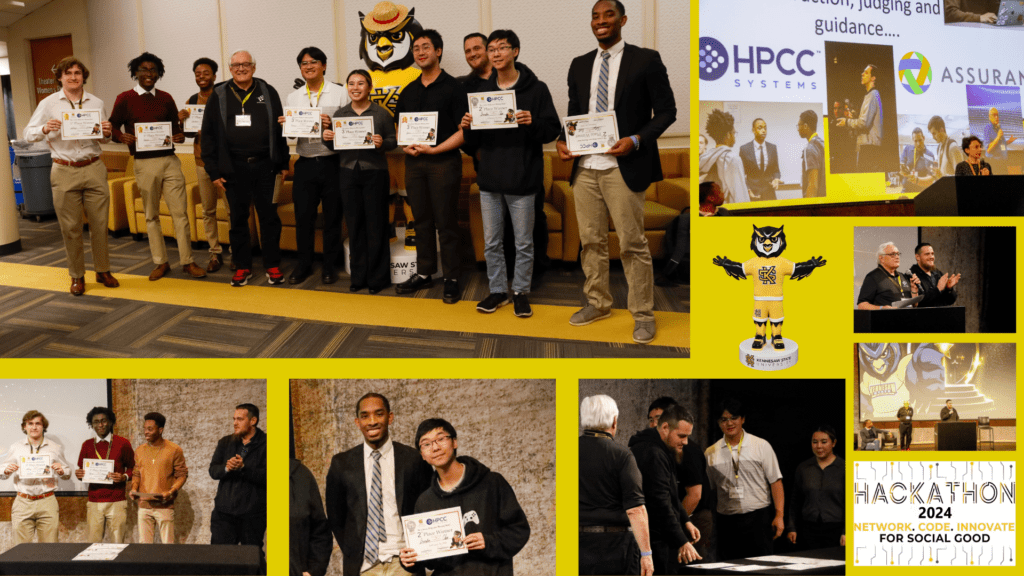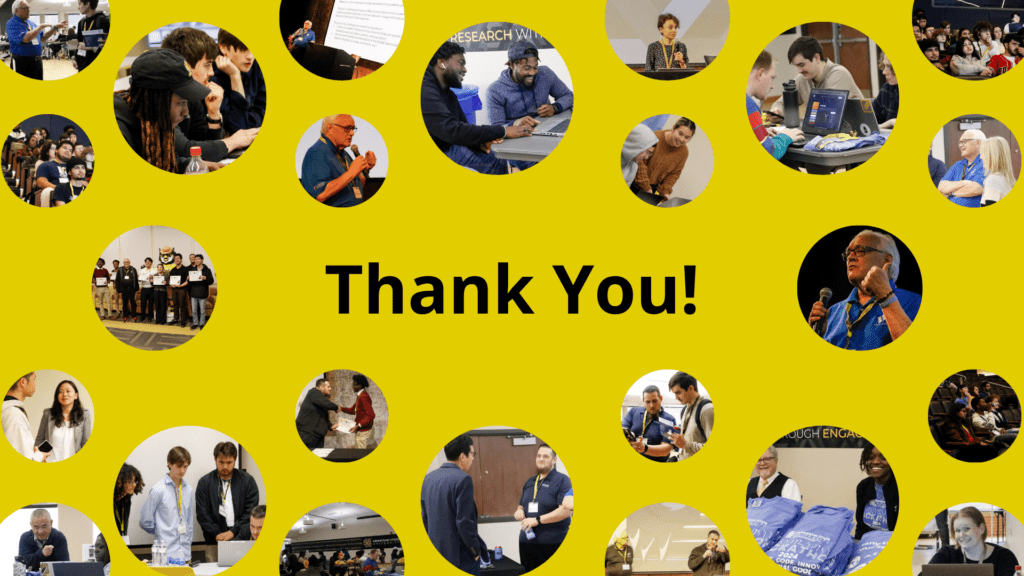The 2024 KSU Hackathon for Social Good

Since 2017 HPCC Systems has taken part in Kennesaw State University’s annual Hackathon for Social Good held at the Joe Mack Wilson Student Center, Marietta Campus. The goal of this hackathon is to connect students with companies through workshops and mentoring to achieve a final product that can in some way help the community. This year was no different and in fact, was the most in-depth challenge HPCC Systems has offered so far. This year the Help Missing Kids Challenge was introduced.
Help Save Missing Kids
The Help Missing Kids Challenge is the result of years of support between LexisNexis Risk Solutions and NCMEC (the National Center for Missing & Exploited Children). LexisNexis Risk Solutions became partners with NCMEC in the year 2000 by developing the Automated Delivery of Alerts on Missing Children, now known as The ADAMTM Program. Trish McCall, Co-Founder of the ADAM Program speaks on how this challenge brings awareness to this amazing program.
“Collaboration with academia is so important to help raise awareness and educate students about our big data platform. The Hackathon for Social Good is a perfect way to expose students to our technology, and at the same time, allow them to make an impact for a great cause. I am proud of my fellow Owls and the innovative solutions they came up with in this challenge for helping missing kids.”
– Trish McCall, Sr Director, ADAM Program Co-Founder and 2001 KSU Alumni.
For this challenge, students were asked to use real data from the public NCMEC database along with eight other datasets to try to find correlations within the data looking at various contributing social factors to hopefully determine a cause as to why kids are going missing. The hope is that a team would propose a solution to help combat the chronic issue of missing children.
A little history
KSU has been one of the longest standing academic partnerships HPCC Systems has been a part of. In fact, their College of Computing and Software Engineering (CCSE) has made exceptional contributions to the open-source community, helping to raise awareness and educate students about big data technology through internships, hackathons, research, and more. We’re proud to collaborate with them, including future research projects in the new HPCC Systems lab on their campus. KSU’s dedication to this field has been truly outstanding, and we’re excited to continue working together to make big things happen.
The event

This event always feels like a homecoming. We arrived on campus Thursday late afternoon and began catching up with some familiar faces. After a little while everyone gathered in the auditorium for the opening ceremonies. After the challenge was introduced, the students piled into a classroom for an overview on how to get up and running with ECL.

Friday
On Friday morning we returned to the same classrooms and worked with students on their ECL questions until dark. We probably spent 7-8 hours on campus, and we were impressed by the endurance of the students who stayed for the duration to learn how to use the ECL to help bring these missing kids home.
Saturday
Saturday began with the students finishing up their projects for final submission. For judging we were once again joined by ECL experts from around the globe. Bob Foreman was present on campus to help facilitate the interviews and the rest joined us virtually through Microsoft Teams. Each team was given their own time to present their work to the judges. After about 4 hours of judging sessions, we concluded and then deliberated to determine the winners.
The winners
These students went above and beyond, neglecting sleep and comfort to spend 36 hours coding in a language relatively new to them (ECL). Many of them found previously unseen correlations within the datasets and even added new data to their projects which enhanced the overall accuracy of their information.
Congratulations to:
1St Place: L10
Jeffery Felshaw, Constant Nortey Jr., Philip Nsajja
Team L10 did an outstanding job. The thing that set this team on top of the podium was their results showed potential for practical usage. They also added some good datasets to their project which really enhanced the connections they were able to find along with adding a population multiplier to help even the playing field for the per capita results.
2nd Place: L11
Phillip Bell, Branden Chen, Keshaun Berry
Team L11 used lots of the visualization tools built into ECL including different graphs and a choropleth map by county for the United States showing missing children hot spots. They also showed how involved they were with this cause by visiting the local fire station and speaking with first responders about how they handle missing children cases.
3rd Place: Bogosort
Khang Nguyen, Trisha Nguyen, John Huynh
Team Bogosort incorporated an autism dataset as well since they noticed a high correlation in children with autism going missing.

Post event, follow up
HPCC Systems also participated in KSU’s Career Networking Night that took place the week following the hackathon, where students had the opportunity to interact with the team to learn about what it’s like working at LexisNexis Risk Solutions, and also answered questions about available opportunities for the students to pursue. During the event, the team noticed that many students had a good understanding of the Python programming language. This observation inspired HPCC Systems to offer something of interest to the students as part of the Summer Internship Program titled Refactoring and releasing PyHPCC.
Project Description
PyHPCC is a Python package and wrapper built around the HPCC Systems web services that facilitates communication between Python and HPCC Systems. Some core functionalities PyHPCC offers are workunit submission through inline queries or using a Git repository, reading contents from a logical file, uploading files to a landing zone, and making Roxie calls. This internship project aims to enhance the existing PyHPCC code base and make it accessible to the HPCC Systems community. This project will modify and improve PyHPCC to enable its wider availability to the community.
Wrap up
These students showed incredible ingenuity and determination to complete this challenge. This was the most in-depth challenge offered by HPCC Systems and the students came up with very new and unique solutions. This event helped to grow the student’s interest in HPCC Systems and its capabilities to work with and deliver big data.

